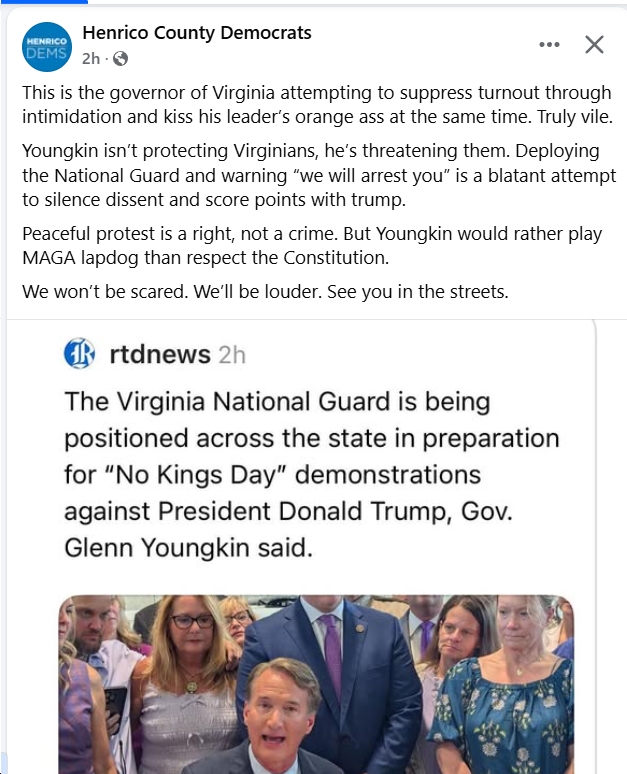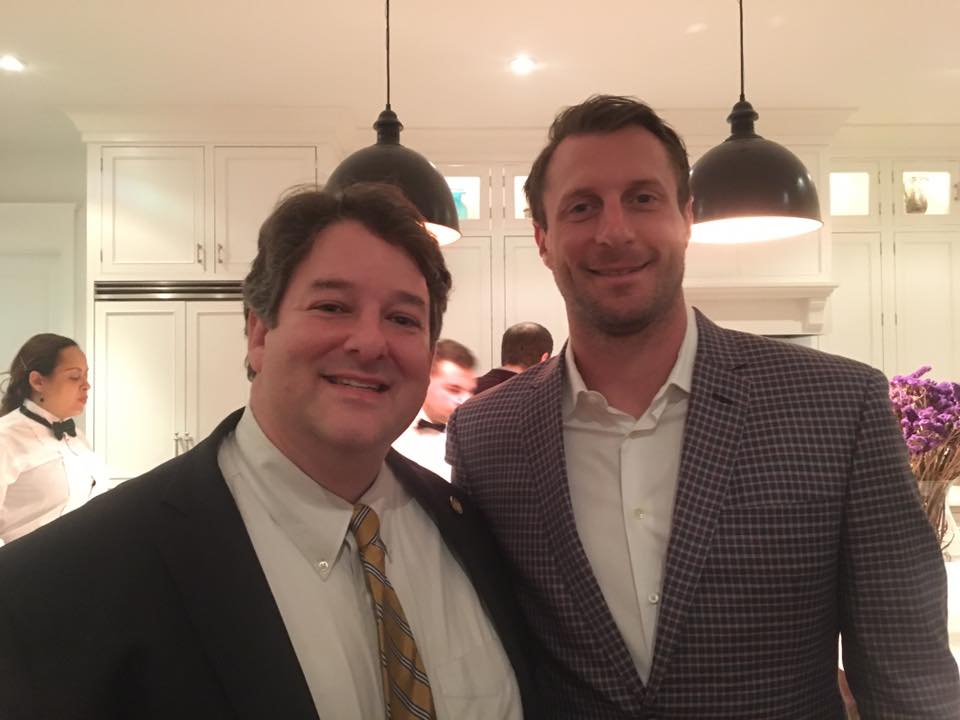Don’t remember former Attorney General Edwin “Ed” Meese III? See below the video for a few “highlights” from his illustrious career, to put in perspective his endorsement for right-wing extremist Bryce Reeves (see VA GOP Lt. Gov. Candidate Bryce Reeves Really Needs to Listen to Del. Mark Levine and Stop Being a Raving Bigot and here for his unhinged “terrorists invade suburbia!” ad, just to get a flavor of where this guy’s coming from) for Lt. Governor of Virginia.
So…back to the Ed Meese highlights reel (bolding added by me for emphasis):
“As Reagan’s chief of staff, Meese was instrumental in the decision to crack down on student protesters at People’s Park in Berkeley, California, on May 15, 1969. Meese was widely criticized for escalating the official response to the People’s Park protest, during which law enforcement officers killed one student protestor and injured hundreds of others, including bystanders. Meese advised Reagan to declare a state of emergency in Berkeley, contrary to the recommendation of the Berkeley City Council. This resulted in a two-week occupation of People’s Park by National Guard troops.”
“Near the end of Reagan’s presidency, Meese’s involvement in the Iran-Contra affair as a ‘counselor’ and ‘friend’ to Reagan was scrutinized by the Independent Counsel for Iran/Contra Matters, which stated in its official report that Meese’s knowledge of the 1985 HAWK transaction ‘raised serious legal questions.'”
“Meese created a ‘storm of controversy’ in December 1983 after his responses to questions about hunger in America. In response to a question about balancing spending cuts against the need to feed hungry children, he said that he hadn’t seen ‘authoritative’ evidence that children in America were going hungry and that some of the allegations of this ‘are purely political.’ When asked about soup kitchens he said that ‘some people are going to soup kitchens voluntarily… I know we’ve had considerable information that people go to soup kitchens because the food is free and that that’s easier than paying for it.’ Democratic leaders and social welfare activists called his comments ‘disgraceful’, ‘an outrage’, ‘unkind and mean-spirited’ and ‘absolutely ridiculous.’ Tip O’Neill, the Speaker of the House of Representatives, compared Meese to Ebenezer Scrooge”
“In the mid ’80’s, there was a federal investigation into Attorney General Edwin Meese’s connections and alleged financial improprieties related to Meese’s efforts to help the Bechtel Corporation build an Iraqi pipeline…The report of special prosecutor James C. McKay cleared Meese of criminal wrongdoing, but criticized him for ethical lapses, especially regarding bribes to Israel not to attack an Iraqi oil pipeline which benefited associates of the Attorney General.”
“The Wedtech Scandal was the name of an American political scandal involving the award of government contracts. In February of 1987, James C. McKay was named independent counsel in the Wedtech case. The investigation centered on actions Meese took that benefited him and his longtime friend and former lawyer, E. Robert Wallach. McKay looked into Meese’s involvement, while attorney general, in negotiations involving the company Wedtech (Wallach worked as a lobbyist for the company and sought help from Meese on Wedtech contract matters). McKay never prosecuted or sought indictment of Meese, but in his official report, which is still confidential, he was highly critical of Meese’s ethics and urged further investigation of Meese’s role in that scandal and others (such as Meese’s efforts to help Bechtel Corporation). Meese described this as ‘full vindication.’ While Meese was never convicted of any wrongdoing, he resigned in 1988 when the independent counsel delivered the report on Wedtech.”
Also see this: “Attorney General Edwin Meese III became directly involved in the Reagan Administration‘s secret plan to sell weapons to Iran in January 1986, when he was asked for a legal opinion to support the plan. When the secret arms sales became exposed in November 1986, raising questions of legality and prompting congressional and public scrutiny, Meese became the point man for the Reagan Administration’s effort, in Meese’s words, ‘to limit the damage.'”















